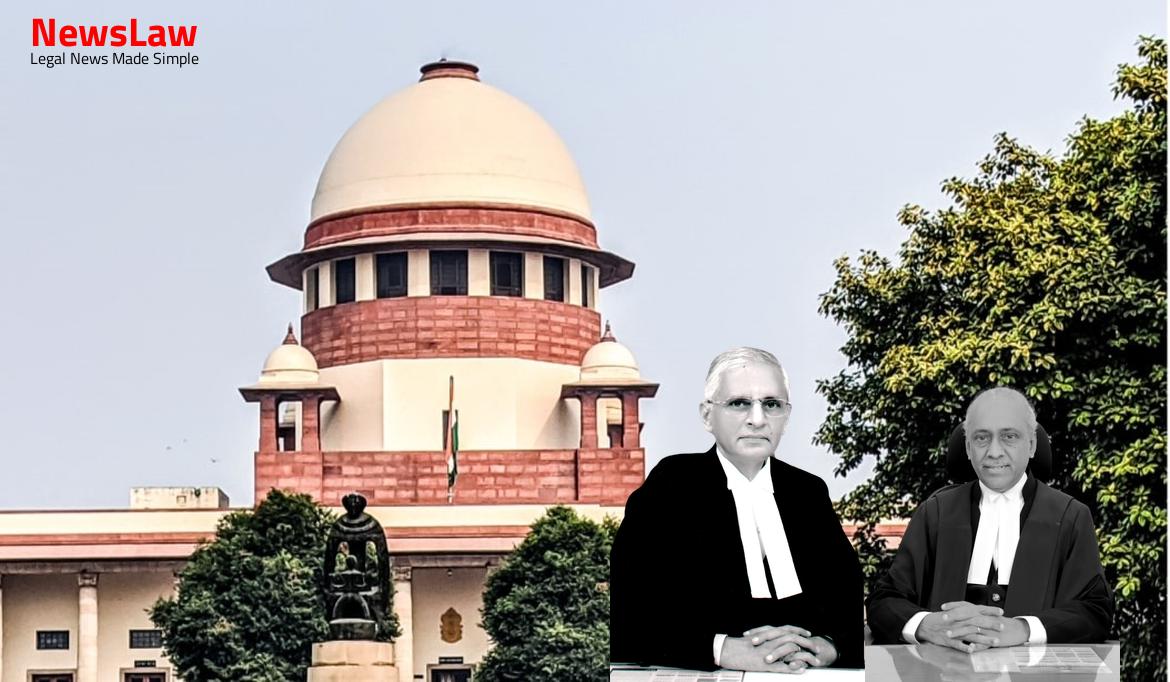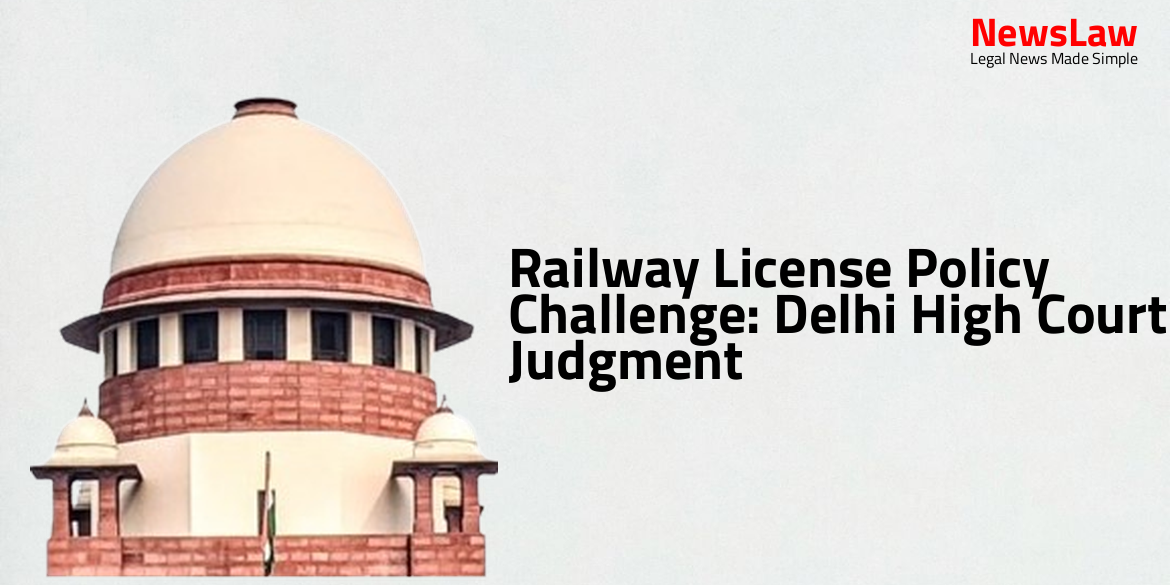In a recent legal case, the court delves into the intricate details of statutory requirements for nomination validity in election petitions. The analysis focuses on the significance of complying with the law to establish a candidate’s legitimacy. Let’s dive into the intricate legal framework surrounding nomination validity in election law.
Facts
- The appellant filed two nomination forms on different dates with conflicting responses regarding his dismissal from Government service.
- The nominations were found invalid as they did not include a required certificate regarding dismissal for corruption or disloyalty to the State.
- The appellant’s election petition sought to declare the respondent’s election void due to improper rejection of his nomination and alleged non-disclosure by the respondent.
- The Allahabad High Court dismissed the Election Petition against the respondent based on procedural grounds.
- The Allahabad High Court dismissed the Election Petition because the appellant had no locus to challenge the election of the respondent.
- The appellant was neither an elector for the Varanasi Parliamentary Constituency nor a candidate.
- The appeal arises from an order passed by the Election Tribunal considering the application filed under Order VII Rule 11 CPC seeking rejection of the Election Petition.
- For the Varanasi Constituency, the last date of filing nominations was 29.04.2019.
Also Read: Electoral Malpractices in Mayor Election
Issue
- Validity of the appellant’s nomination is crucial to determine his candidacy and right to question the election.
- Decision must be made based on the averments in the Election Petition, not respondents’ replies.
Also Read: Balancing Power and Transparency: Electoral Bonds Struck Down, Disclosure Mandated
Arguments
- The contention that the election was vitiated due to misuse of official power by the Returning Officer and the Election Observer is rejected.
- The appellant was not provided with sufficient time/opportunity to receive and submit the record as claimed.
- The proviso states that time ‘may be allowed’ at the discretion of the Returning Officer, not as a right to be claimed by the appellant.
- The respondent, Shri Narendra Modi, filed an application to dismiss the petition, arguing that it lacked cause of action and the appellant had no locus without a certificate.
- The appellant replied to the first notice stating he had not been dismissed from service on the ground of corruption or disloyalty without providing a certificate from the Election Commission.
- The appellant requested a certificate from the Election Commission after receiving the second notice but did not have one before the deadline.
- The rejection of the nomination based on the lack of the Election Commission certificate is considered contrary to law.
- The appellant argues that he should have been given until the next day following the date fixed for scrutiny to rectify the objection raised by the Returning Officer.
- The rejection of the nomination form due to the absence of the requisite certificate is the primary challenge in the Election Petition.
Also Read: Recall of Resolution Plan Approval: Legal Analysis
Analysis
- The requirement of Section 33(3) for a certificate stating no dismissal for corruption or disloyalty is mandatory.
- A person cannot claim to be duly nominated if they do not comply with statutory requirements.
- The word ‘deemed’ in the provision does not create a legal fiction.
- The appellant did not possess the required certificate at the time of filing the nomination.
- The claim of being ‘duly’ nominated implies compliance with statutory requirements.
- A contestant must adhere to all provisions of the Act to claim being duly nominated.
- The High Court should have considered the Election Petition as maintainable only if nomination paper was wrongly rejected by the Returning Officer.
- The appellant’s claim of being duly nominated depends on meeting the requirements of the statute.
- The term ‘candidate’ is defined in Section 79(b) of the Act.
- Section 33(3) of the Act explicitly states that a candidate without a required certificate shall not be deemed duly nominated.
- The language in Section 33(3) is imperative, clearly indicating the consequence of not having the certificate.
- It would be absurd to interpret the legislative scheme as allowing a person without the necessary certificate to claim to be a duly nominated candidate.
- Section 81 of the Act specifies that only electors or candidates can present an Election Petition.
- This section definitively states that a person without the required nomination shall not be considered as duly nominated.
- To claim to have been duly nominated, a person must ensure their nomination paper complies with mandatory requirements.
- If a nomination paper was not subscribed by the required number of electors as proposers and seconders, the person cannot claim to have been duly nominated.
Decision
- The defendant failed to provide the required documents within the specified timeframe
- The court found the defendant in breach of contract due to this failure
- The plaintiff’s claim for damages was upheld by the court
Case Title: TEJ BAHADUR Vs. SHRI NARENDRA MODI (2020 INSC 655)
Case Number: C.A. No.-002100 / 2020



